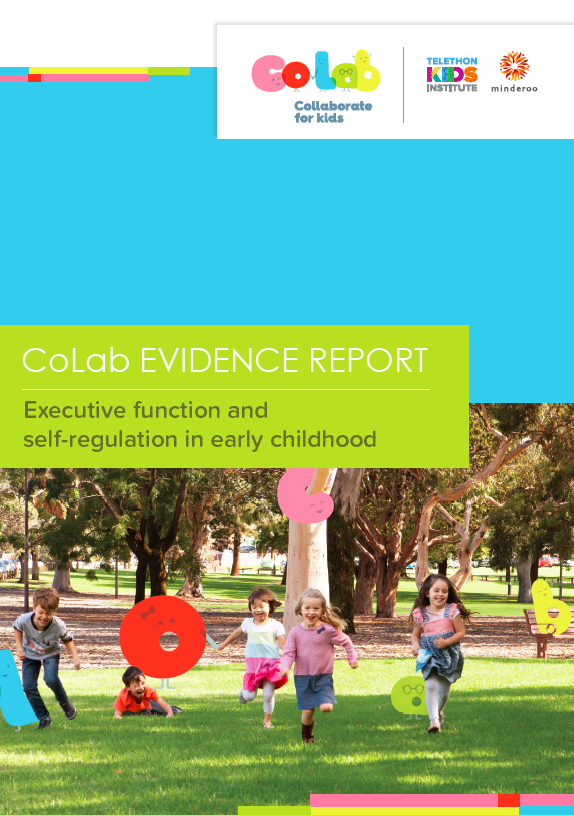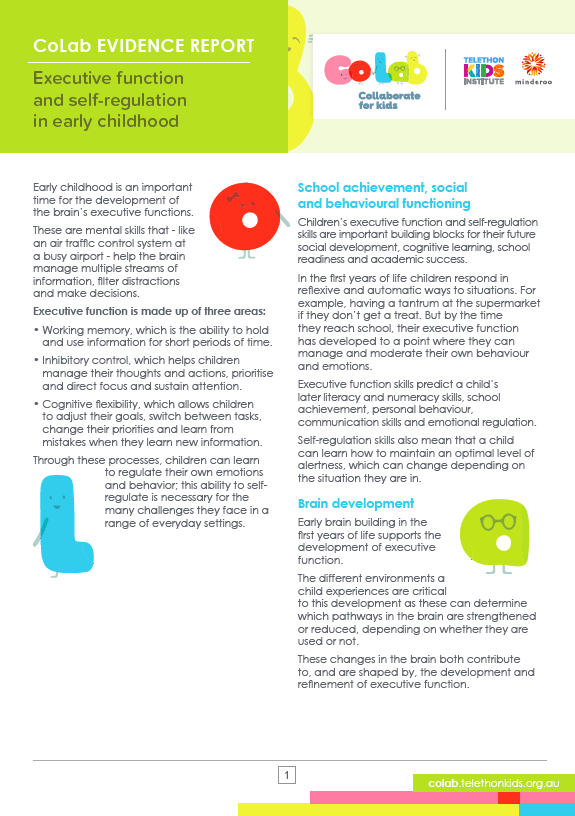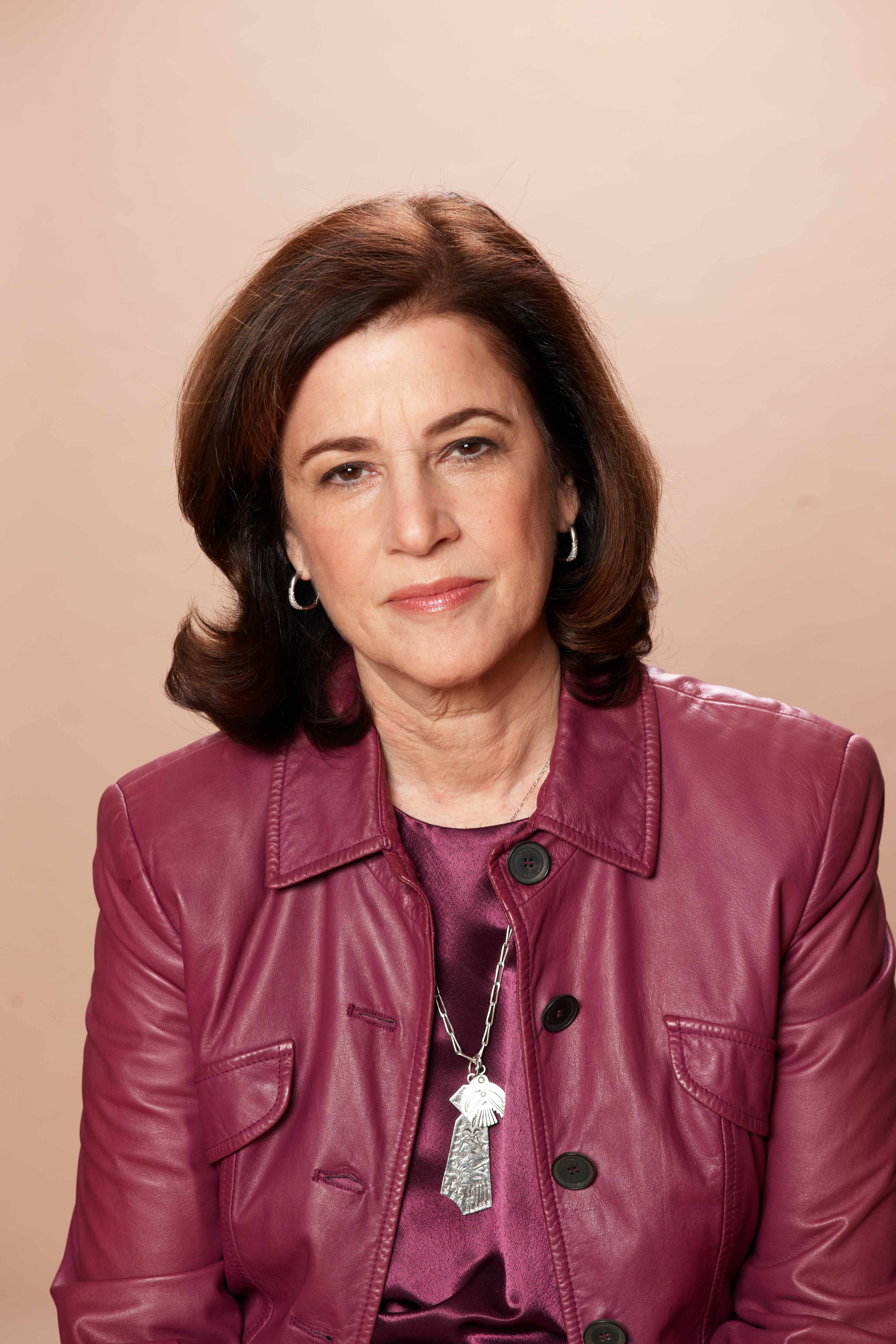Early childhood is increasingly recognised as a critical time for the development of executive function.
These processes enable children to manage multiple streams of information at the same time, filter distractions, monitor errors, make decisions, switch gears and revise plans as necessary. Essentially, these core skills help children pull together their feelings and thinking in order to manage their attention, emotions and behaviour, so that they can successfully reach their goals.
Evidence Report
Executive function skills are critical in allowing a child to successfully navigate everyday challenges in a range of environmental contexts, including coping with the demands of formal schooling. This Evidence Report outlines the main components of executive function and describes how these core skills develop in early childhood.
Read the Evidence Report to learn more about the development of executive function and self-regulation in early childhood.
Read the reportExecutive Function
Read the report
Research Snapshot
Early childhood is an important time for the development of the brain’s executive functions. These are mental skills that help the brain manage multiple streams of information, filter distractions and make decisions.
Read this Research Snapshot for a quick look at executive function and self-regulation in early childhood.
Read the snapshotExecutive Function
Read the snapshot
News Article with Ellen Galinsky
Life skills for every child
News Article
Ellen Galinsky has spent a lifetime unlocking the science behind how children learn as well as the skills essential to helping them thrive and, sharing that knowledge with others.
The renowned author of the best-selling book Mind in the Making: The Seven Essential Life Skills Every Child Needs, and chief science officer at the Bezos Family Foundation, says it is not just the content of what a child learns but, importantly, how they go about learning that is predictive of later life success.
Read the full article
